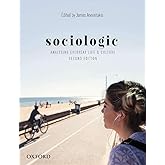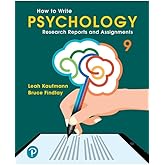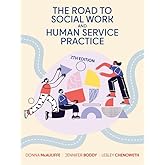
Download the free Kindle app and start reading Kindle books instantly on your smartphone, tablet or computer—no Kindle device required.
Read instantly on your browser with Kindle for Web.
Using your mobile phone camera, scan the code below and download the Kindle app.

Psychology: From Inquiry to Understanding Paperback – 23 August 2018
You can select and apply an appropriate plan based on your cart value at checkout.
-
3-12 mo instalmentsLatitude
-
Pay at Your PaceZip
| Payment options | Interest | Total* |
|---|---|---|
| $22.89/mo (6 mo) minimum purchase of $100 | 0% | $137.32 |
| $45.78/mo (3 mo) minimum purchase of $50 | 0% | $137.32 |
** Latitude: Monthly credit card fee (currently $10.95) will apply. Equal monthly repayments apply, account fees, late fees apply. Provider may charge interest. Exclusions apply. For more details click on Learn more above. You acknowledge that credit is provided to you by Latitude Finance Australia ABN 42 008 583 588, Australian Credit Licence number 392145, and the instalment plan is subject to the terms and conditions imposed on you by Latitude. Equal monthly repayments apply (exact amounts specified in your Latitude statement) and card fees will be charged by Latitude. If you fail to make your minimum monthly payment for two consecutive months, you agree that your equal monthly payment plans (Instalment Interest Free Promotion) with a term of fewer than 33 months will change into a minimum monthly payment plan (Interest Free Promotion) for the remaining duration of the initial plan term. If you fail to make a payment on time, Latitude will charge late fees. Latitude will also charge interest on any outstanding balance at the end of the instalment plan period you select at the rate set out in its T&Cs (currently 29.99% p.a.). Interest may also apply to other Latitude credit card transactions or if you do not comply with the Latitude T&Cs.
| Account type | Interest |
|---|---|
| Zip Pay | Always interest free^ |
| Zip Money | 12 mo interest free,
25.9% p.a. thereafter* |
^Zip Pay: This is a credit product and is interest free. Minimum monthly repayments are required. A monthly account fee of $9.95 is charged by Zip and is subject to change. Pay your closing balance in full by the due date each month and Zip will waive the fee. Available to approved applicants only and subject to completion of satisfactory credit assessment by Zip. Other charges may be payable. Fees and charges subject to change. Zip T&Cs apply. T&Cs available on application. See your Zip contract for further details. Credit provided by Zip Money Payments Pty Ltd (ABN 58 164 440 993), Australian Credit Licence Number 441878.
*Zip Money: Interest free term subject to minimum spend and promotional partner offer. Available to approved applicants only and subject to completion of satisfactory credit check. The repayment advertised will repay the transaction balance within the advertised interest free period. A monthly account fee of $9.95 applies and a one off establishment fee may apply for new customers. Under the contract, minimum monthly repayments are required and will vary depending on your credit limit. Instalment plans split eligible purchases of $300 and above into equal repayments within the interest free period. If you turn off instalments, transactions will be reverted to the minimum monthly repayment. Paying only the minimum monthly repayment may not necessarily repay a purchase within the interest free period. Any balance outstanding at the expiry of the interest free period will be charged at the standard variable interest rate, 25.9% per annum, as at 1 June 2023. Other charges may be payable, see T&Cs. Interest, fees and charges are subject to change. Terms & Conditions apply and are available on application. See your contract for further details. Credit provided by ZipMoney Payments Pty Ltd (ABN 58 164 440 993), Australian Credit Licence Number (441878).
Purchase options and add-ons
For first year psychology students
Request a digital sample - for educators >
The goal of this text is to empower students to apply scientific thinking to the psychology of their everyday lives. By applying scientific thinking - thinking that helps protect us against our tendencies to make mistakes - we can better evaluate claims about both laboratory research and daily life.
Students will emerge with the critical-thinking skills and open-minded scepticism they need to distinguish psychological misinformation from psychological information. The product is designed to encourage students to keep an open mind to new claims, but to insist on and evaluate evidence informing these claims.
Samples
Download the detailed table of contents >
Preview sample pages from Psychology: From Inquiry to Understanding >
- ISBN-101488615748
- ISBN-13978-1488615740
- Edition3rd
- PublisherPearson
- Publication date23 August 2018
- LanguageEnglish
- Dimensions23.6 x 2.5 x 28.8 cm
- Print length784 pages
There is a newer edition of this item:
Frequently bought together

Customers who viewed this item also viewed
Product description
About the Author
Scott O. Lilienfeld received his BA in Psychology from Cornell University in 1982 and his PhD in Clinical Psychology from the University of Minnesota in 1990. He completed his clinical internship at Western Psychiatric Institute and Clinic in Pittsburgh, Pennsylvania, from 1986 to 1987. He was Assistant Professor in the Department of Psychology at SUNY Albany from 1990 to 1994, and is now Samuel Candler Dobbs Professor of Psychology at Emory University and a Visiting Professor at the University of Melbourne. He is a Fellow of the Association of Psychological Science and was the recipient of the 1998 David Shakow Award from Division 12 (Clinical Psychology) of the American Psychological Association for Early Career Contributions to Clinical Psychology. More recently, he received the James McKeen Cattell Award from the Association for Psychological Science for outstanding career contributions to applied psychology across disciplines. Dr Lilienfeld is president of the Society for a Science of Clinical Psychology within Division 12 and past president of the Society for the Scientific Study of Psychopathy. He is editor of Clinical Psychological Science and until recently was a regular columnist for Scientific American Mind magazine. He has authored or co-authored 14 books and more than 350 journal articles and chapters. Dr Lilienfeld has also been a participant in Emory University's 'Great Teachers' lecturer series, a Distinguished Speaker for the Psi Chi Honor Society at the annual American Psychological Association convention and a keynote speaker at numerous national and international conventions.
Steven Jay Lynn received his BA in Psychology from the University of Michigan and his PhD in clinical psychology from Indiana University. He completed an NIMH Postdoctoral Fellowship at Lafayette Clinic, Detroit, Michigan, in 1976 and is now Distinguished Professor of Psychology at Binghamton University (SUNY), where he was the director of the Psychological Clinic and the director of the Laboratory of Consciousness and Cognition. Dr Lynn is a Fellow of numerous professional organisations, including the American Psychological Association and the Association for Psychological Science, is a diplomate in clinical and forensic psychology (ABPP) and was the recipient of the Chancellor's Award of the State University of New York for Scholarship and Creative Activities. Dr Lynn has authored or edited 22 books and authored more than 350 other publications, and was named on a list of 'Top Producers of Scholarly Publications in Clinical Psychology PhD Programs' (2000–2004/Stewart, Wu & Roberts, 2007, Journal of Clinical Psychology). Dr Lynn is the founder and editor of Psychology of Consciousness: Theory, Research, and Practice (APA) and he has served on 11 other editorial boards, including the Journal of Abnormal Psychology. Dr Lynn's research has been featured in numerous media outlets, including the New York Times, New Scientist Magazine, Discover Magazine, CBS Morning Show, ABC's 20/20, Discovery Channel and the Academy Award-winning documentary, Capturing the Friedmans.
Laura L. Namy received her BA in philosophy and psychology from Indiana University in 1993 and her PhD in cognitive psychology at Northwestern University in 1998. She is now Director of the Center for Mind, Brain, and Culture at Emory University, where she is also Professor of Psychology and Core Faculty in Linguistics. She recently completed a three-year term at the National Science Foundation as a Program Director in the Behavioral and Cognitive Sciences Division. She is a past editor-in-chief of the Journal of Cognition and Development and a Fellow of the American Psychological Association. Her research focuses on the origins and development of verbal and nonverbal symbol use in young children, sound symbolism in natural language and the role of comparison in conceptual development.
Graham Jamieson received his BSc from the University of Queensland in 1983 and his MSc in 1987. He worked as a researcher in the world-leading University of Queensland hypnosis laboratory led by Peter Sheehan, receiving his PhD in 2002. He is currently Senior Lecturer in Cognitive Affective and Social Neuroscience at the University of New England, Armidale. Dr Jamieson's primary research focus is the cognitive neuroscience of hypnosis and conscious states, and in particular the testing and development of dissociation theories of trance states. He seeks to promote the development of a new generation of research leaders in this field both in Australia and around the world. He is also a specialist in the application of advanced signal-processing techniques to the analysis of EEG data and in the practical applications of advancing neuroscience technology, interests he developed as a postdoctoral researcher in the Division of Cognitive Neuroscience at Imperial College London. As an educator he aims to pass on his skills, excitement and irreverence for authority to developing research students.
Anthony Marks received his BSc in Applied Psychology from the University of Southern Queensland and his BA with Honours in Psychology and PhD from the University of New England. He researches in the areas of environmental psychology, risk perception and decision making. He also has interests in adolescent psychology and gender studies. He has expertise in survey construction and scale development for assessment of various sociocognitive psychological constructs and in advanced statistical techniques including latent profile analysis and structural equation modelling. Dr Marks has designed learning materials and has successfully coordinated large first-year Psychology classes at the University of New England, and in 2011 was awarded an Australian Learning and Teaching Council Citation for an Outstanding Contribution to Student Learning. He is also a Senior Fellow of the Higher Education Academy.
Virginia Slaughter received her BA in Liberal Arts from Sarah Lawrence College (New York) in 1985 and her PhD in developmental psychology from the University of California at Berkeley in 1994. She moved to the University of Queensland in 1996, where she is now Professor and Head of the School of Psychology. Dr Slaughter's research focuses on social and cognitive development in infants and young children. Her research has produced 100 peer-reviewed articles and chapters, a monograph for the Society for Research in Child Development and three edited volumes. Dr Slaughter serves as an associate editor for the international journal Child Development and she sits on the editorial boards of the British Journal of Developmental Psychology and the Journal of Experimental Child Psychology. Her awards include Fellow of the Academy of the Social Sciences in Australia (2016) and an Australian Award for University Teaching (in the category Teaching Large First Year Classes, 2005).
Product details
- Publisher : Pearson
- Publication date : 23 August 2018
- Edition : 3rd
- Language : English
- Print length : 784 pages
- ISBN-10 : 1488615748
- ISBN-13 : 978-1488615740
- Item weight : 1.72 kg
- Dimensions : 23.6 x 2.5 x 28.8 cm
- Best Sellers Rank: 73,479 in Books (See Top 100 in Books)
- 114 in Clinical Psychology Textbooks
- 578 in Clinical Psychology (Books)
- 763 in Medicine & Health Sciences Textbooks
- Customer Reviews:
Customer reviews
Top reviews from Australia
There was a problem filtering reviews. Please reload the page.
- Reviewed in Australia on 17 August 2021Format: PaperbackVerified PurchaseGot this book for grad dip psych, much cheaper than sites suggested by uni.
- Reviewed in Australia on 9 September 2020Format: PaperbackVerified PurchaseLike?! You HAVE to be kidding! It's a set uni text, FGS! It is, obviously, fit for purpose...
- Reviewed in Australia on 30 August 2019Format: PaperbackVerified PurchaseAppropriate for learning course specific material. Easy to read, and retain.
- Reviewed in Australia on 30 May 2023Format: PaperbackVerified PurchaseThis is printed on the cheapest stock, the cover is thinner than bond paper and the pages are thin as tissue, not designed for reading a second time because it will tear too easily. Save your money on this expensive book and stick to the digital versions, if you can. Also, after comparing different editions we could find no appreciable differences between the current print and the last two editions, just the format on each page has been tweaked.







![Psychology: From Inquiry to Understanding [RENTAL EDITION]](https://m.media-amazon.com/images/I/51p7Pp+9wkL._SR75,75_.jpg)






![Psychology: From Inquiry to Understanding [RENTAL EDITION]](https://images-fe.ssl-images-amazon.com/images/I/51p7Pp+9wkL._AC_UL165_SR165,165_.jpg)

